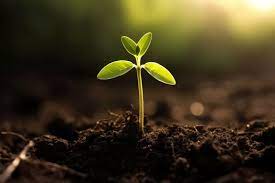Catastrophic Change and the Seeds of Renewal
Change can be brutal
In 2011, my husband and I watched a series on Netflix called “Into the West.” We enjoyed it, but it was depressing. It covered the expansion of white people from the east to the west throughout the nineteenth century, focusing on the conflict between the whites and Native Americans as the inexorable tsunami of wagons crossed the plains. It told about Indian wars, broken treaties, the near extinction of the buffalo, stolen lands... For the whites, the 1800’s were an exciting time of prosperity and gain. Inventions made life easier, the railroad brought the coasts together, while gold mines, industry, banking made some people millionaires. Huge cattle ranches and drives were the stuff of legend. Literature, politics, education, entertainment, journalism--there was nothing withheld from the irrepressible, enterprising whites of eighteenth-century America.
For the Indian tribes, it was a time, with a few notable exceptions, of humiliation and loss. They fought bravely for what they felt was theirs, but it was a lost cause from the day the Mayflower landed at Plymouth Rock. Radical change for them was coming, no matter what they said or did. An alien, white culture invaded their space in such overwhelming numbers that it was a matter of join them or perish. As we watched the series, my heart broke, but the writers were careful to end each segment with the point that the westward movement changed and challenged everyone. Cattlemen mourned the barbed wire that proliferated all over their old drive trails. The greed and prejudice of the lawless west chewed up Caucasians, Blacks, Chinese, South Americans, and many other minorities.
The necessity of change
Later it dawned on me that the challenge to change or be exploited forever was not just a Native American problem. Women fought long and hard for an entire generation to gain the right to be educated and to vote. Then it took the destruction of WW II to push us femmes into the job market where we learned what we could really do. We were factory workers, spies, cryptographers, and pilots. For Black citizens, the Tuskegee airmen proved to biased white pilots that race is no factor in flying skills.
Black citizens were emancipated after the Civil War, but the Jim Crow laws weren't far behind, and the non-violent Civil Rights movement of the 1960s fomented a holocaust of hatred that stuns me every time I see the documentaries on TV. Traditional attitudes about segregation were mauled on both sides of the debate, but when the dust of future decades settled, a better world evolved, and of course is still evolving.
The Jews weren’t just hated in Germany. At the beginning of WW II there were parks, careers, and clubs in America that Jews could not enter. Catholics and Protestants anathematized each other in their theology. Poles, Hungarians, Armenians, etc., each ethnic group has a story of persecution almost to the point of extinction. Everyone had to change, both the haters and the persecuted. Remnants of every group survived the clash of agendas.
Change can lead to a better world
Squirrels are pretty clever at storing up all those nuts for the winter, but if all their trees die, they go extinct. Unlike humans, most animals cannot adapt to catastrophic change. Humans adjust. Humans can improve, and actually have somewhat, socially and personally. There is a key to maintaining civic freedom and equality once it is gained. One has to offer it to all others. The golden rule of doing unto others as you would have them so unto you slowly moves societies forward, raising all boats like a welcomed tide. If the pursuit of happiness and self-realization is not available to all, Black, white, brown, male, female, straight, or gay, it will profit no one for long.
In the biblical parable of the Good Samaritan, we are told nothing about the victim of the robbery. He was just a man in the ditch, bleeding and needy. As for harboring thoughts of vengeance and hatred against the groups that exploited us in the past, we should let that go and see that era of our history as a time of testing to strengthen us and force us to grow and express ourselves. After all, the other key to freedom and equality is that it has to be earned by resisting oppression.
Personal change can lead to resilience and growth.
Sometimes personal change seems like the end of the world. That day when the surgeon says, “I’m sorry. We did everything we could.” When a wife checks her husband’s phone texts and finds sweet nothings sent to another woman. That IED goes off beneath your jeep. Your doctor informs you that you have chronic fatigue syndrome or lupus so “normal” for you is years of daily struggle. The long-awaited babe in your womb will be abnormal. In a moment, life as you knew it is over, and a completely new horizon looms. A new identity, new hobbies, or none at all. New friends to hang out with. New stuff to learn about.
This is not an admonition to “just get over it. Move on. Shake it off.” No one who has experienced loss can accept an attitude like that. Moving on takes time, healing, and loving support. I get that. But when we walk through that Valley of Death or loss, we must try to remember that we are never alone.
Psalm 39:1-12, NKJV, from biblegateway.com

I like the idea of moving on with God beside yoy
ReplyDeleteLife is tough and we are weak. God is strong,lean on Him
ReplyDelete